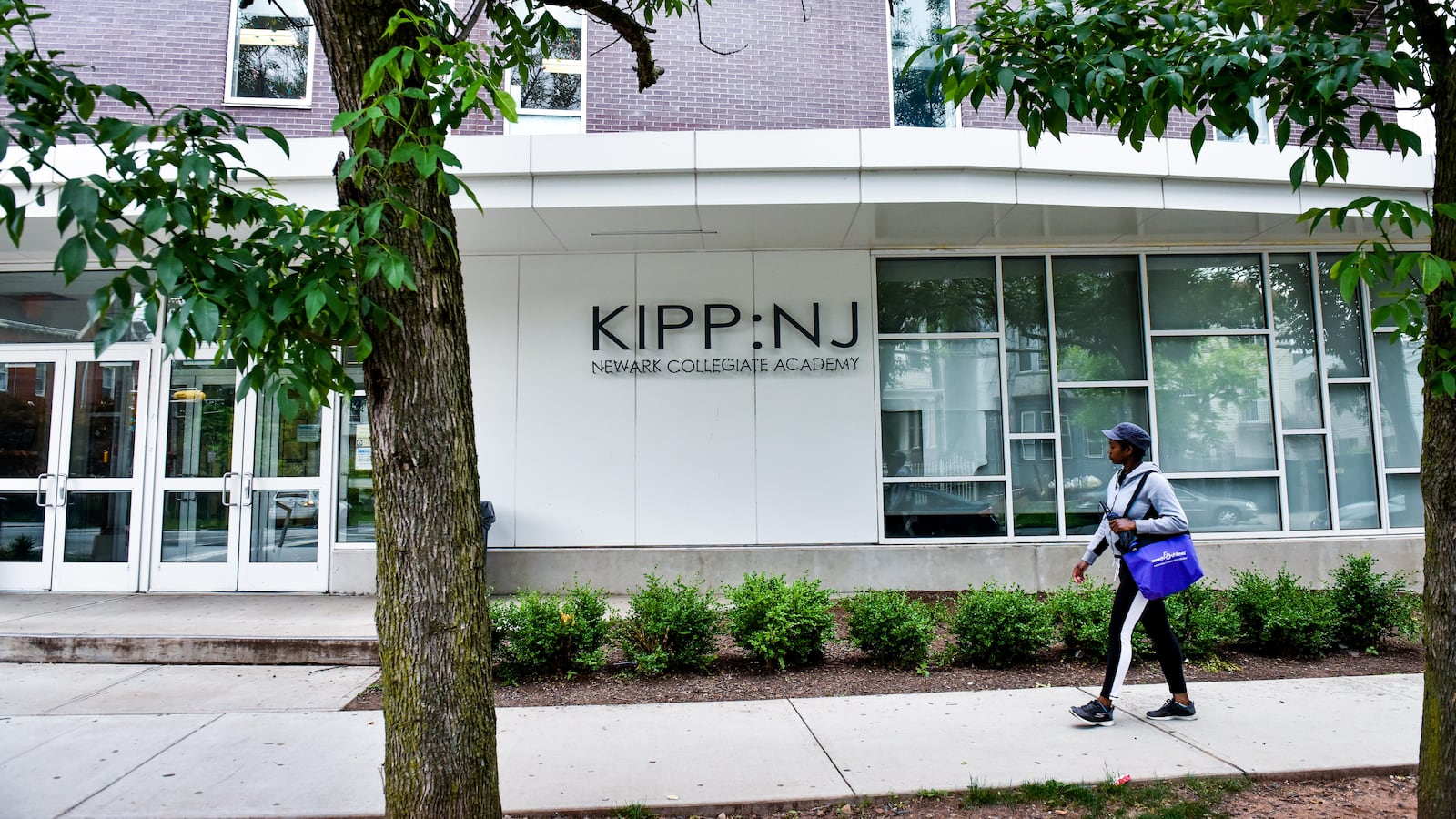Newark’s largest charter school networks give students a big bump in their test scores, while other charter schools are far less effective at boosting scores, a new study finds.
Students who enrolled at schools run by the city’s two largest charter operators — KIPP and Uncommon Schools — saw large and lasting gains on their test scores, according to the analysis of data from 2014 to 2018. But students who attended a different set of charter schools, on average, got a much smaller boost.
The study by the Manhattan Institute adds to previous research showing that Newark’s charter schools, which educate more than a third of the city’s public-school students, collectively raise students’ test scores. But the analysis also sheds new light on the wide variation within Newark’s large charter sector, showing that the big charter school networks with the most students drive the sector’s positive results.
“The average positive effect is heavily influenced by the networks, KIPP and Uncommon,” said the study’s author, Marcus A. Winters, a senior fellow at the Manhattan Institute and an associate professor at Boston University. Winters has previously defended charter schools, which are publicly funded but independently operated.
The study comes a month after the superintendent of the Newark school system urged the state to close four small charter schools in the city and block new charters from opening. Both locally and nationally, critics have demanded a halt to the spread of charter schools, arguing that they siphon resources from traditional public schools.
Winters’ study does not assess the impact of Newark’s charters on the traditional school district. Instead, it measures the performance of charter school students relative to their peers in traditional public schools.
Winters noted that the two networks’ outsize influence is partly a factor of their size — they enroll about half of Newark charter students — and their strong outcomes. His study groups together a dozen smaller charter operators, which could obscure the effectiveness of individual schools, he added. And it excludes nine operators that did not participate in Newark’s citywide enrollment system; several of those schools, including Robert Treat Academy and Gray Charter School, are exceptionally high-performing.
Winters’ analysis uses a novel approach to isolate the effects of the schools he studied. By using enrollment system data, he was able to compare Newark charter students to similar students who applied to charters but ended up in traditional schools. That method allowed him to control for student characteristics, such as race and disability status, as well as the desire to attend a charter school.
“I think the methodology imposed removed a lot of the selection bias,” said Sarah Cohodes, a professor at Columbia Teachers College who has studied charter schools. Without taking those steps before comparing charter and traditional school outcomes, “you’re always a little worried that students who are going to a charter school are fundamentally different than the ones who are not going to charters.”
KIPP is the nation’s largest nonprofit charter network with more than 100,000 students in schools spread across 20 states and Washington, D.C. Its 11 Newark schools serve nearly 4,800 students. Uncommon Schools, which manages schools in six cities, has operated in Newark under the banner of North Star Academy for more than 20 years. Its 14 campuses in Newark enroll more than 5,500 students.
Attending a school in one of those two networks lead to statistically significant and “quite large” gains in students’ math and English test scores, relative to students in traditional schools, the study found. The positive effects were larger than most other educational interventions that have been rigorously studied, the report says. And the effects persisted for several years, even if students switched schools.
By contrast, the other charter schools that participated in the citywide enrollment system during this time period produced only modest gains. That test-score boost was not statistically significant except for one year in math. While it’s possible some schools in that group get good results, it’s clear that others do not; several of the schools included in the study have since been shut down or put on probation due to poor performance.
The findings are in line with national studies showing that schools run by charter management organizations, including KIPP and Uncommon, generally improve student achievement more than standalone charter schools.
The networks are known for an approach, sometimes described as “no excuses,” that emphasizes rigorous coursework, orderly classrooms, and longer school days. But Winters study is not able to show whether that approach or other factors drove the schools’ results.
The study also does not look at students’ longer-term outcomes. Previous studies have found that KIPP schools raise students’ test scores and increase their odds of enrolling in college. But the research is less clear that KIPP students have an advantage in completing college, though the network has made a push to help its graduates earn degrees.
Because the study relies on data from Newark’s citywide enrollment system, it cannot with certainty measure the impact of the charter school operators that opted out of the system. However, Winters said the evidence suggests that those schools do, on average, improve student achievement.
The study does not say what all this means for Newark’s traditional schools, which still educate the majority of students. Other reports have found that the district’s schools have improved their test scores and graduation rates even as the charter sector expanded. Yet the spread of charter schools has also put a strain on the district’s budget, helping force school closures and layoffs over the past decade.
The new analysis of charter schools’ academic effects “doesn’t give us a measure of the health of the system as a whole,” said Bruce Baker, a professor at the Rutgers University Graduate School of Education who has analyzed the impact of charter school expansion on traditional schools. “I’m not sure it helps us in figuring out the best policy for the city.”


